'When the war against Ukraine that Putin started is not going the way he was expecting it to and his military options are getting onerous, a bit of nuclear sabre rattling is what he hopes will turn things around for him and Russia.'
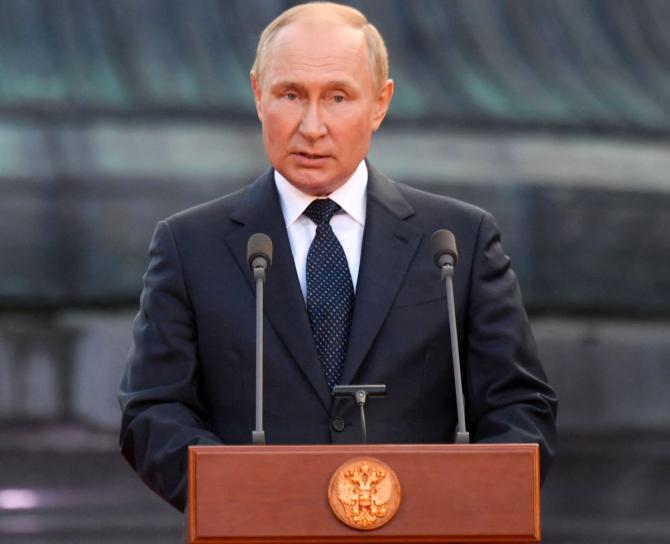
Is President Putin's frequent sabre rattling on the use of nuclear weapons a sombre warning to Western countries? A genuine threat? Or is he simply bluffing.
Dr Bharat Karnad, emeritus professor in national security studies at the Centre for Policy Research, the Delhi think-tank, and a national security expert explains the chain of developments taking place following the Russian invasion of Ukraine.
"No one in Moscow expected Zelenskyy and the Ukrainian people to react the way they did nor anticipated that the US/NATO would set up an arms supply line enabling Ukrainian forces," Dr Karnad tells Rediff.com Senior Contributor Rashme Sehgal.
Why is President Putin resorting to frequent nuclear sabre rattling? Are these threats creating the desired fear in the West as Putin would like to believe?
When the war against Ukraine that Putin started is not going the way he was expecting it to and his military options are getting onerous, a bit of nuclear sabre rattling is what he hopes will turn things around for him and Russia.
But it is not having the effect he expected in the main because a 75-year-old nuclear use taboo is hard to overcome, particularly because conventional military setbacks in Ukraine and that too of Russia's making, don't seem serious enough provocation.
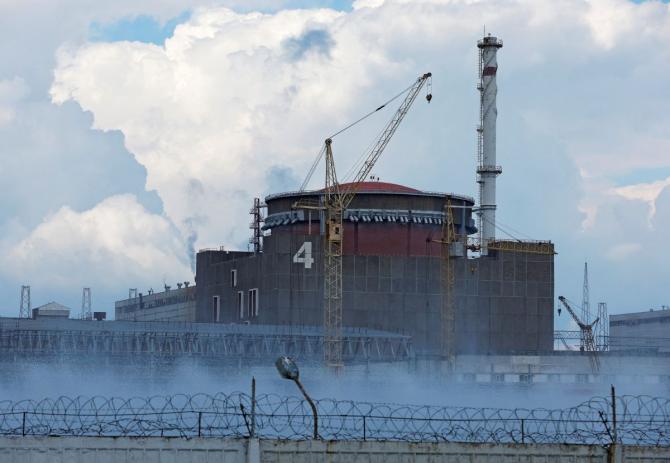
How is Nato indulging in 'nuclear blackmail' of Russia? Is the territorial integrity of Russia being threatened as Putin claims?
Well, the context is this. The informal understanding of the 1994 Budapest Memorandum that promised joint US-Russian-UK security guarantees for Ukraine in return for Kyiv giving up its Soviet-era nuclear arsenal, was that Ukraine would remain outside NATO, Moscow believes this was violated by the moves underway to fast-track Ukraine's membership in NATO.
And that once inside the NATO fold, Ukraine could invoke nuclear protection clauses of the alliance -- which Moscow interprets as 'nuclear blackmail', to prevent Russia from achieving its objective of annexing the Donbas-Crimean flank to the Black Sea.
Crimea was forcibly absorbed by Russia in 2014.
According to Putin, this flank, with an ethnic Russian majority, that connects Crimea and Donbas to Russia, but outside Moscow's control would imperil its access to, and render it vulnerable from, the sea and therefore constitute a security threat.
Are these warnings being issued by President Putin so that Western countries stop their escalation of weapon supply to Ukraine?
Certainly, the US/NATO supply of armaments, especially precision-guided munitions (PGMs), to Ukrainian forces have frustrated Russian plans for rapid armoured thrusts to take the Donbas region.
Whether threats of use 'of all available means' will prompt the US to terminate the military supply pipeline is doubtful -- the strategic gains from keeping Russia thus militarily engaged in Ukraine and progressively weakening are too substantial to forego.
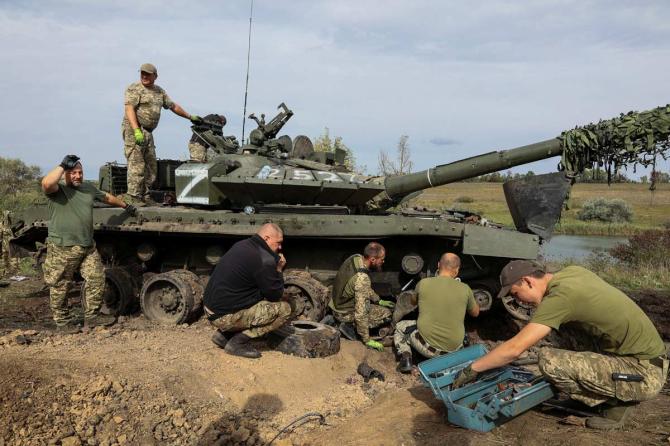
During the recent Modi-Putin interaction in Samarkand, President Putin told Prime Minister Modi that while Russia was keen to end the fighting, the Ukrainian leadership did not want to negotiate a peace settlement. How far is that perception correct?
Hard to know what the truth is when faced with conflicting Russian and Ukrainian accounts.
The facts are these: Russia annexed Crimea in 2014 without much Ukrainian resistance.
Moscow believed that for the same reasons Kyiv would not hugely oppose the Russian takeover of the Donbas.
Except, Ukrainian President Vlodoymyr Zelenskyy was unwilling to cede this territory as well to Russia with or without a fight. So both in a sense are right!
With the kind of reverses the Russian army has faced recently in Kharkiv and with there being no cessation of weapon supplies to Ukraine so far, do you see Russian reverses on the battlefield on the rise and if that is indeed the case, will there be a likelihood of Putin resorting to the use of nuclear tactical weapons in the future?
The use of tacnukes is not likely for reasons of the nuclear taboo already mentioned. But Putin is, perhaps, using the such threat of use by way of a Russian doctrinal innovation, namely, the principle of 'escalate to de-escalate'.
Meaning, make the threat of tacnuke use real and imminent enough to raise fears in Washington about the situation spiraling into a strategic exchange, and thus compel it to pressure Kyiv into halting hostilities and into some kind of accommodation with Moscow.
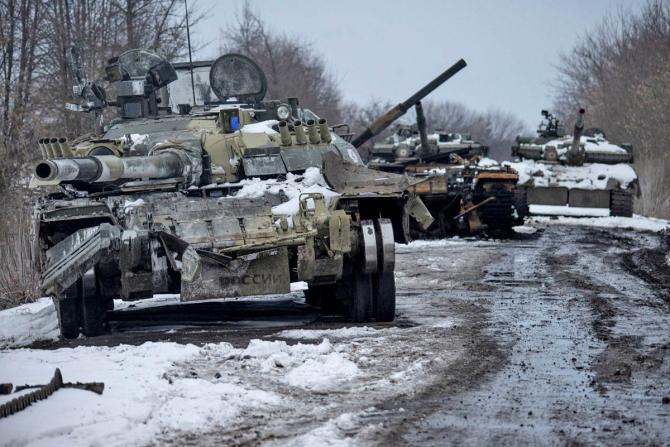
The world is also interested in getting a clearer picture of what is happening at the Russian-controlled Zaporizhzhia nuclear power plant, with its six reactors, making it the largest nuclear power station in Europe which is being operated with the help of Ukrainian workers.
Each of Zaporizhzhia's reactors would cost $7 billion to replace, and with fighting going on around the plant experts do not to rule out a Chernobyl-like disaster.
Zaporizhzhia could be another Chernobyl. Then again not.
Putin, perhaps, has in mind to use the threat to strike this massive nuclear power station as a hostage to 'good' behaviour by Washington and Kyiv. But such tactics are risky because any radioactivity leakage as a consequence of a hit on it could affect the Russian hinterland too because radioactive clouds could easily float across and drop down as rain and infect the Russian countryside or urban areas.
But the reported missile attack on a hydroelectric plant just 300 metres from the nuclear reactors at another Ukrainian nuclear power station in Yuznoukrainsk in southern Ukraine could be a signal to the US and NATO that Moscow's nuclear use threat is 'not a bluff'.
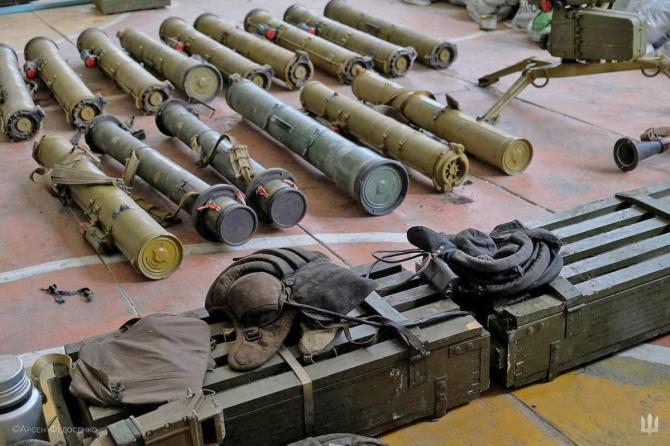
The holding of a referendum set to take place in Donetsk, Luhansk, Kherson and Zaporizhzhia over the weekend provides an interesting subtext to the ongoing developments. Why is this referendum being held in the first place?
The referendum ordered by Putin in these areas is retroactively to endow the Russian actions to annex the Donbas region of Ukraine with a veneer of legitimacy and as a means of showing popular support for the Russian campaign of 'reunification'. And also, just may be, as a means of blunting Western calls for Russian reparations for the destruction visited upon Ukraine by the war.
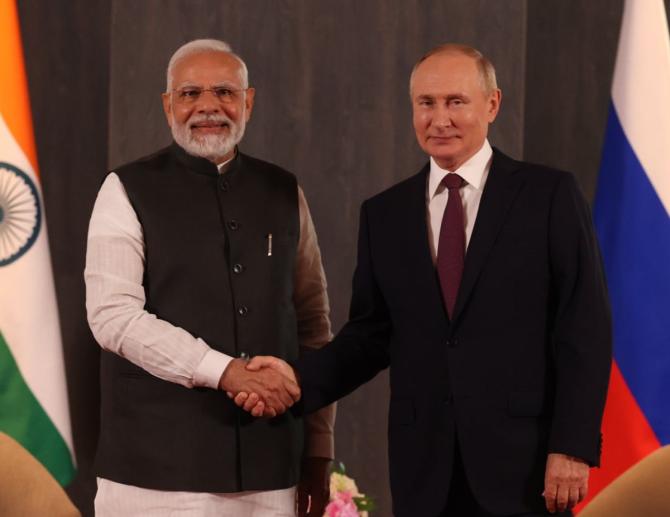
Has the Ukrainian invasion proved to be a major miscalculation on the part of Russia?
Yes, because no one in Moscow expected Zelenskyy and the Ukrainian people to react the way they did, nor anticipated that the US/NATO would set up an arms supply line enabling Ukrainian forces to fight without worrying over much about whether their stocks of guns, ammo, artillery and PGMs to sustain such a fight, would last and for how long.
Moscow also miscalculated about just how much of a public relations disaster this war has been.
While Zelenskyy and the Ukrainian people are seen as heroic in resisting aggression, Russia and its military are seen as bumblers, with much of the world perceiving the conflict as an avoidable misadventure.
It is bad news when even friendly states, such as India and China that Moscow had hoped would sit on the fence, think it best to distance themselves from Russia.
Feature Presentation: Rajesh Alva/Rediff.com


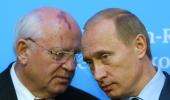






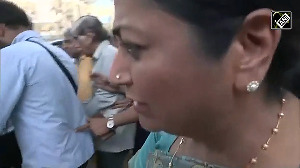

 © 2025
© 2025